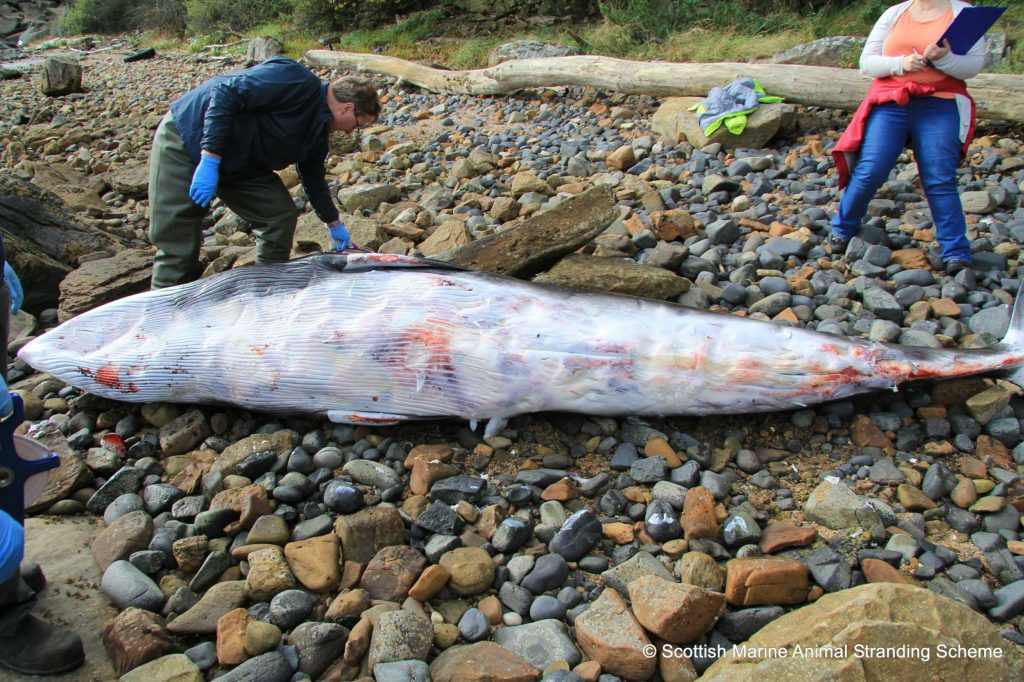NIGHTMARISH pictures show a dead whale calf full of the parasitic worms which likely killed it – and may have been passed on through its mother’s milk.
The horrifying images show the intestines bursting with “spiny-headed” worms which left the creature so weak it beached and died.
The 13ft (four metre) severely malnourished Minke was discovered last week near Dalgety Bay, Fife, and was examined by the Scottish Marine Animal Stranding Scheme (SMASS).

Experts said that the animal appeared to have become stranded whilst still alive after discovering bruising along its underside.
Posting the pictures online, SMASS wrote: “Last Tuesday the SMASS team performed a necropsy on a young Minke whale that stranded at Dalgety bay, Fife.
“The 396cm long female was in very thin condition and showed indications of…live stranding, with significant ventral bruising.
“The reason for this extremely poor condition was a significant parasite burden in the stomach and the intestines.
“Particularly the intestines showed a severe and extensive reaction to these parasites, and abscesses were found all along the intestinal wall.”
Captioning one of the stomach-churning images, SMASS added: “Severe parasite burden in the intestines: some of the spiny-headed worms had perforated the intestinal wall.”
Nick Davidson, strandings coordinator for SMASS, said initial post-mortem reports have indicated it is likely the parasite cause the animal’s death.
He said: “It appears to be a calf from this year. Initial post-mortem reports have indicated that it is the parasite which has most likely killed the whale but we are awaiting histology and bacteriology tests.
“Parasites are one of the most common killers of Minke whales. Once infected they either strike a balance of surviving and living with the parasite or they succumb to it.
“Its a species of parasite specific to marine life and can’t be passed to humans.”
The graphic post has attracted wide-spread interest across social media, with nearly 200 likes and many viewers commenting on the images.
Annie Davidson said: “The poor thing must have suffered unimaginably”
Kiri Storrar wrote: “Very sad but fascinating at the same time.”
David Ferguson responded: “Poor beautiful creature, so sad.”
Whilst the parasite found in this case was specific to marine life and couldn’t be passed to humans, some other species of parasite in fish can infect people.
The British Medical Journal has previously warned sushi lovers over the dangers of ingesting parasites from raw and undercooked fish.
Earlier this year a 32-year-old man, in Lisbon, Portugal, was found to have parasite larvae on his gut lining.
However, it was only when the man revealed he had recently eaten sushi that doctors suspected he might have anisakiasis.
Anisakiasis is a parasitic disease caused by anisakid nematodes (worms) that can invade the stomach wall or intestine of humans.
Minke whales, which have an estimated lifespan of up to 50 years, can be found anywhere from the tropics to the ice edges of the northern hemisphere.